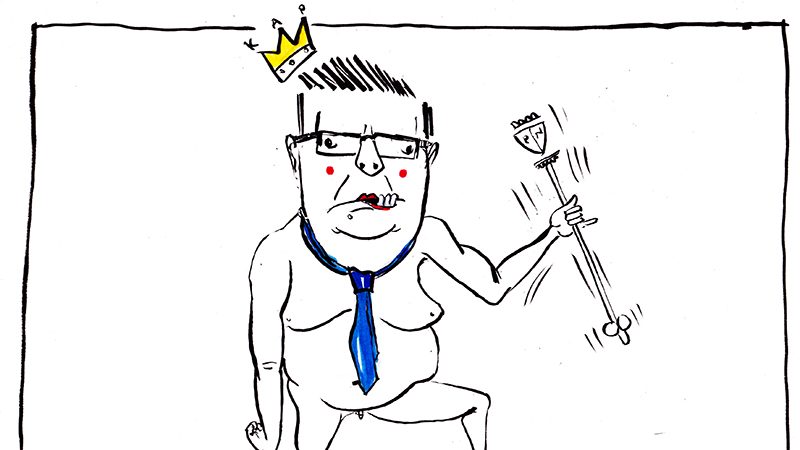By presenting a motion that would have denied same-sex couples 100 hours of leave for IVF treatment, Nationalist Party Leader Adrian Delia is putting in jeopardy the progress made by the party on LGBTIQ issues in the past years. He sent the party back into the conservative trenches.
By emphasising that the PN motion was legalistic in nature and sought to highlight incompatibilities in the definition of “prospective parents”, reveals a lack of political tack. (He referred to differences between the legal notice and the 2012 Embryo Protection Act).
What counts in politics is tangible results. In this case, had Delia’s motion been approved. same sex couples would have been denied the right for 100 hours of leave.
Delia has perpetuated the perception that the PN shows little compassion. If Delia is not against granting leave to these couples, then what was the point of the whole charade?
As things stand, the only option same sex couples have to build a family of their own is to get IVF treatment abroad. Granting leave to these couples is an act of compassion. On these issues, when it comes to public perception, love always trumps rigid legalisms.
Trying to deny rights to people who simply want to become parents is unfair. It is also bad public relations, especially among younger voters.
This is unfortunate. Under former PN Leader Simon Busuttil, the PN had come a long way from abstaining on civil unions in 2014 to proposing gay marriage in its electoral programme. The backlash the party faced after that abstention was the jolt it needed to start opening up to the LBGTIQ community.
Following the party’s electoral defeat, the conservative wing of the party started to raise its head again as Joseph Muscat craftily moved to introduce equal marriage before the summer recess. In a bid to seal his legacy on the matter, Busuttil imposed his line in favour of same sex marriages in this debate. In this way he avoided a repetition of the civil unions fiasco and honoured a commitment made in the PN’s electoral programme.
It created resentment, with the conservative wing taking umbrage at the decision not to grant a free vote on an issue that formed part of the party’s electoral programme. Delia promised a free vote on ethical issues before he was elected. A few months down the line, it is Delia who has refused to grant a free vote on a motion that was bound to resurrect faultlines in the party.
Six prominent MPs – which include Busuttil, leadership contender Chris Said and former Deputy Leader Mario De Marco – declared themselves against the motion presented by Delia while opting not to participate in the vote.
Godfrey Farrugia on behalf of the Democratic Party, which formed part of the Forza Nazzjonali coalition, voted against the motion. This was a golden opportunity for the Democratic Party to distinguish itself from the PN.
Why did Delia not grant a free vote on matters of conscience, as he had promised? Why did he not act in the interest of party unity? Granting a free vote would seem to be the natural thing to do for a party that includes both social conservatives and liberals.
There is nothing wrong with MPs defying the party line and voting according to their conscience, especially on issues on which the party is not bound by in its electoral programme. Backbench revolts are signs of a vibrant democracy, when done in the public interest rather than personal gain.
If handled well, divisions in the PN may be seen as a welcome contrast to the slavic adulation of the leader which reigns in the Labour Party. MPs on all sides should be granted a free vote in any forthcoming vote on the Embryo Protection Act.
This act should be openly re-discussed in Parliament for one basic reason: Expecting couples to travel abroad to get access to treatment not available in the Maltese National Health Service is in itself creating social inequality between those who can afford this expense and those who cannot.
Politically it remains unclear what Delia’s end game is; whether he wants the party to move back to its conservative “religio e patria” roots or whether he is simply placating conservatives through sheer legalisms while accepting that things have changed? Or is he placating employers who will fork out the bill for more leave hours?
When asked by Lovin Malta on his stance on gay marriage before he was elected leader, he replied by asking “What was the added right of gay marriage? Was it symbolic? I don’t think we should be thinking in terms of symbols when legislating.” But Delia also made it a point on Monday to lay a wreath at the foot of the Love Monument in St Julians to mark the International Transgender Day of Remembrance.
This may be seen as a balancing act made to counter the impact of the PN’s motion, which was discussed two days later. Perhaps Delia’s actions are now dictated by political survival. Yesterday’s vote may well be seen as an attempt at gaining the loyalty of conservative MPs and split the internal opposition.
Sure enough, on a national level Delia’s motion has backfired, giving Joseph Muscat another golden opportunity to portray the PN as a regressive party and a threat to the rights of the LGBTIQ community.
The PN has no-one else to blame but itself for offering the government a distraction from the corruption issue on a silver platter. We will be reminded over and over again that the PN wanted to deny LGBTIQ people 100 hours of leave. The liberals in the party could have been spared that humiliation.













